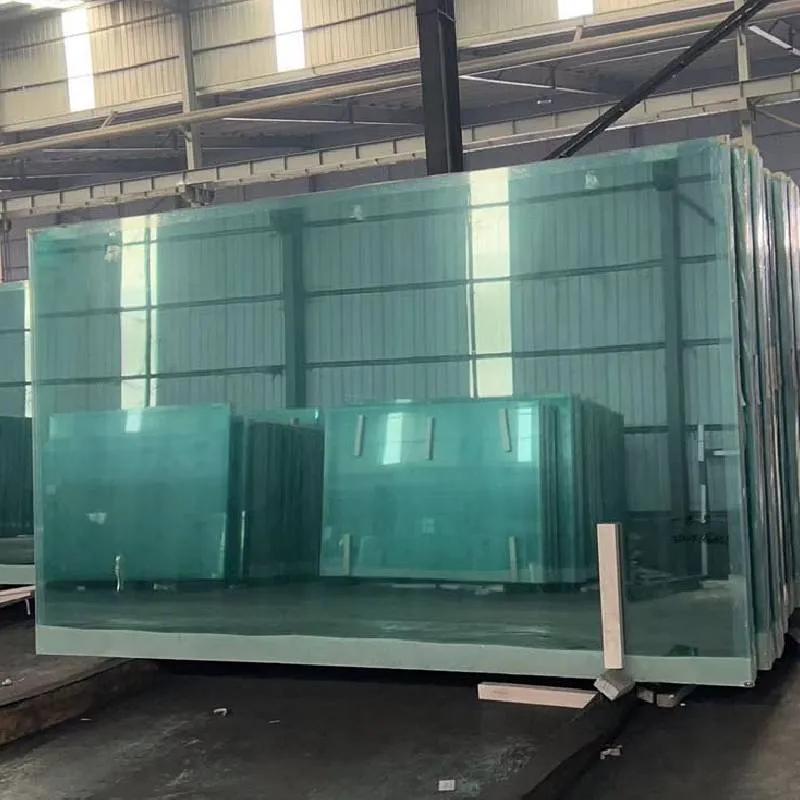Float Glass Panels The Innovative Choice for Modern Architecture
Float glass, a type of glass produced by the float glass process, has become a cornerstone in modern architecture and design. Its unique manufacturing method results in a flat, smooth surface that is highly valued for a variety of applications, including windows, facades, and interior design elements. The evolution of float glass panels has revolutionized the way architects and builders approach design, offering both functionality and aesthetics.
The Float Glass Manufacturing Process
The float glass process was developed in the 1950s by Sir Alastair Pilkington, and it fundamentally changed glass production. In this method, molten glass is floated on top of molten tin, where it spreads out evenly to form a flat surface. This technique produces glass that is not only uniform in thickness but also free from impurities and distortions. The result is a panel that is ideal for both residential and commercial use.
The float glass process involves several steps. Initially, raw materials such as silica sand, soda ash, and limestone are fused together in a furnace at high temperatures. The molten glass is then carefully poured onto the surface of molten tin, creating a layer that floats and forms a seamless, flat sheet. Once cooled, the glass is cut into panels of various sizes, ready to be transformed into the final product. This level of precision ensures that float glass panels can meet the stringent requirements of modern construction standards.
Applications of Float Glass Panels
Float glass panels have a wide range of applications, making them a versatile choice for architects and builders. One of the primary uses is in windows, where the clarity and flatness of the glass allow for maximum natural light penetration while providing excellent thermal insulation. Advanced coatings can further enhance energy efficiency, reflecting heat during summer and retaining warmth in winter, thereby reducing energy costs.
float glass panel
Another significant application of float glass is in building facades. The ability to create large, uninterrupted glass surfaces enables architects to design stunning, visually appealing buildings. The sleek appearance of float glass can be combined with other materials, such as steel and concrete, to create striking contrasts and innovative designs. Moreover, the transparency of float glass panels can create a sense of openness and connectivity with the surrounding environment, making spaces feel larger and more inviting.
In interior design, float glass is used in a variety of ways, such as mirrors, partitions, and decorative elements. The reflective quality of the glass can enhance the perception of space in smaller rooms, while also allowing for creative lighting effects. Additionally, the resilience and durability of float glass make it suitable for use in high-traffic areas, ensuring longevity and reducing maintenance costs.
Environmental Considerations
As the construction industry continues to emphasize sustainability, float glass panels are proving to be an environmentally friendly option. Many manufacturers are adopting eco-efficient practices, utilizing recycled materials in the glass production process and implementing energy-efficient technologies in manufacturing. Float glass is also 100% recyclable, which means that at the end of its lifecycle, it can be re-formed and reused without losing quality.
The advent of low-emissivity (low-e) glass technology has also enhanced the environmental profile of float glass. Low-e coatings can significantly reduce the amount of ultraviolet (UV) and infrared (IR) light that enters a building, helping to maintain indoor temperatures and protect furnishings from fading.
Conclusion
Float glass panels are a testament to the innovation in modern materials technology. Their versatility, aesthetic appeal, and environmental benefits make them an ideal choice for contemporary architecture and design. As we move toward a more sustainable future, float glass continues to play a critical role in shaping the built environment, offering solutions that meet both functional and aesthetic demands. With ongoing advancements in glass technology, the potential for float glass panels in various applications appears limitless, paving the way for even more innovative and breathtaking architectural designs.
 Afrikaans
Afrikaans  Albanian
Albanian  Amharic
Amharic  Arabic
Arabic  Armenian
Armenian  Azerbaijani
Azerbaijani  Basque
Basque  Belarusian
Belarusian  Bengali
Bengali  Bosnian
Bosnian  Bulgarian
Bulgarian  Catalan
Catalan  Cebuano
Cebuano  Corsican
Corsican  Croatian
Croatian  Czech
Czech  Danish
Danish  Dutch
Dutch  English
English  Esperanto
Esperanto  Estonian
Estonian  Finnish
Finnish  French
French  Frisian
Frisian  Galician
Galician  Georgian
Georgian  German
German  Greek
Greek  Gujarati
Gujarati  Haitian Creole
Haitian Creole  hausa
hausa  hawaiian
hawaiian  Hebrew
Hebrew  Hindi
Hindi  Miao
Miao  Hungarian
Hungarian  Icelandic
Icelandic  igbo
igbo  Indonesian
Indonesian  irish
irish  Italian
Italian  Japanese
Japanese  Javanese
Javanese  Kannada
Kannada  kazakh
kazakh  Khmer
Khmer  Rwandese
Rwandese  Korean
Korean  Kurdish
Kurdish  Kyrgyz
Kyrgyz  Lao
Lao  Latin
Latin  Latvian
Latvian  Lithuanian
Lithuanian  Luxembourgish
Luxembourgish  Macedonian
Macedonian  Malgashi
Malgashi  Malay
Malay  Malayalam
Malayalam  Maltese
Maltese  Maori
Maori  Marathi
Marathi  Mongolian
Mongolian  Myanmar
Myanmar  Nepali
Nepali  Norwegian
Norwegian  Norwegian
Norwegian  Occitan
Occitan  Pashto
Pashto  Persian
Persian  Polish
Polish  Portuguese
Portuguese  Punjabi
Punjabi  Romanian
Romanian  Russian
Russian  Samoan
Samoan  Scottish Gaelic
Scottish Gaelic  Serbian
Serbian  Sesotho
Sesotho  Shona
Shona  Sindhi
Sindhi  Sinhala
Sinhala  Slovak
Slovak  Slovenian
Slovenian  Somali
Somali  Spanish
Spanish  Sundanese
Sundanese  Swahili
Swahili  Swedish
Swedish  Tagalog
Tagalog  Tajik
Tajik  Tamil
Tamil  Tatar
Tatar  Telugu
Telugu  Thai
Thai  Turkish
Turkish  Turkmen
Turkmen  Ukrainian
Ukrainian  Urdu
Urdu  Uighur
Uighur  Uzbek
Uzbek  Vietnamese
Vietnamese  Welsh
Welsh  Bantu
Bantu  Yiddish
Yiddish  Yoruba
Yoruba  Zulu
Zulu 

